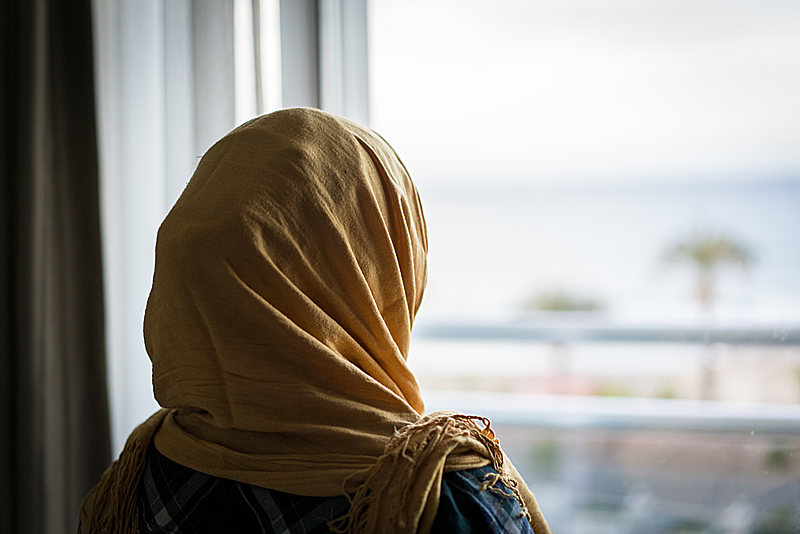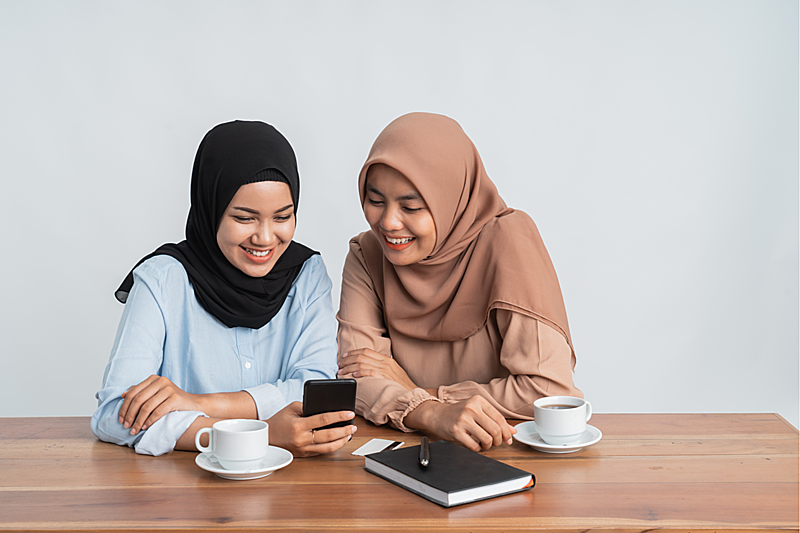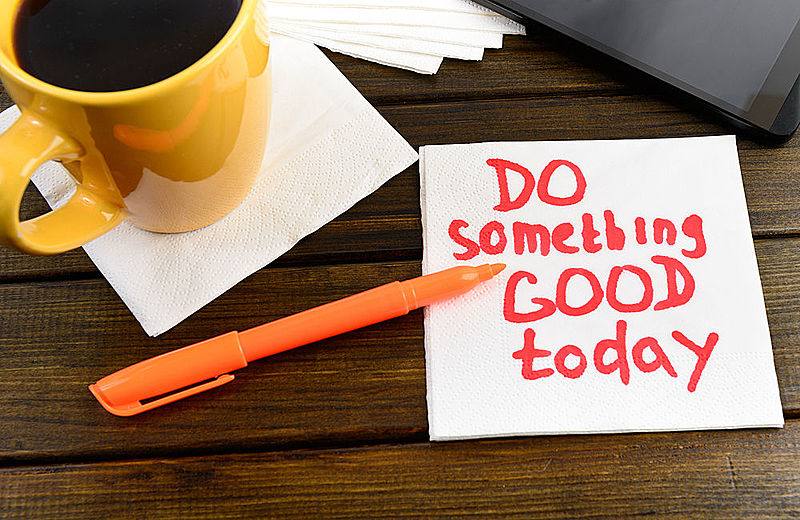7 things you can do if you cannot fast during Ramadan
Alhamdulillah for the ni’mah (blessing) of being able to breathe the air of Ramadan. Every believer has always longed for this special month. That’s how connected we are to this wonderful month of Ramadan. Indeed, we are very grateful to Allah s.w.t. for bestowing us this blessing.
Ramadan is the month where many of us will strive to put in our best efforts to be close to Allah s.w.t, mainly by fasting. Indeed, every form of worship that is valued highly in the sight of Allah s.w.t. will come with a set of tests and challenges.
Unfortunately, not everyone can fast in this blessed month for genuine reasons, such as illnesses or old age.[1] For ladies, in particular, experiencing menstruation (haid) or post-natal bleeding (nifas) in Ramadan also means they are not able to participate in a number of ritual acts of worship.
Many may feel sad and disappointed. What can I do if I cannot fast? I don’t want to waste this unique opportunity in Ramadan.

Don’t despair. Allah s.w.t. does not give us challenges except that there are blessings that come with it. Accepting what Allah has ordained upon us is in itself worship (‘ibadah). Besides, there are other forms of 'Ibadah that we can do to gain Allah’s pleasure in this blessed month of Ramadan.
Allah s.w.t. increases the rewards of every good deed and 'Ibadah in this month, not just for fasting, but for every other good deed too!
Here are 7 tips on how to ace Ramadan despite our inability to fast.
1. Prepare food for those who fast

This is one of the simplest ways to gain the rewards of fasting without doing the actual fast itself! How generous is Allah s.w.t. to us as His servants when He provides us a great alternative to still gain the rewards of fasting despite our conditions. Zaid bin Khalid Al-Juhani (May Allah be pleased with him) reported: The Prophet s.a.w. said,
مَنْ فَطَّرَ صَائِمًا كَانَ لَهُ مِثْلُ أَجْرِهِ غَيْرَ أَنَّهُ لاَ يَنْقُصُ مِنْ أَجْرِ الصَّائِمِ شَيْئًا
“Whoever provides a fasting person something with which to break his fast with, will earn the same reward as the one who was observing the fast, without diminishing in any way the reward of the latter.”
(Sunan At-Tirmizi)
We can simply prepare or get food delivered for those who are fasting and we will earn the same reward! Amazing right? Indeed, Allah is Al-Kariim (The Most Generous).
2. Zikrullah (Remembrance of Allah)
أَلَا بِذِكرِ اللَّهِ تَطمَئِنُّ القُلوبُ
“Indeed, by remembering Allah s.w.t, the hearts will find tranquillity.”
(Surah Ar-Ra’d, 13:28)
There are so many ways to remember Allah s.w.t. We can recite the Majestic Name ‘Allah’ repeatedly or by reciting the 'everlasting good deeds' (Al-Baqiyat As-Solihat):
سُبحَانَ الله، وَالحَمدُ لِلَّهِ، وَلَا إِلَهَ إِلَّا الله، وَاللهُ أَكبَر
‘Subhaanallah wal hamdulillaah wa laa ilaaha illallaah Allaahu Akbar.’
Allah is free from imperfections; All praise is due to Allah; There is no true god except Allah; Allah is the Greatest.
Read: 5 Beautiful Dua for You This Ramadan
3. Recite duas and Quranic verses that you know by heart

We can also recite any of the many duas that we know. For ladies on their period, some of you will say that you would love to recite the Quran but you are unable to do so. “So how, Ustazah?”
I would say that you can still recite the Quran with your mind and heart, without actually verbalising it; that is still permissible. Or you can open YouTube and listen to the beautiful recitations of the Qurra’ (the reciters of the Quran) which are so pleasing to the ears and soothing for the hearts. Remembering Allah with a heart full of sincerity will invoke Allah’s mercy upon us.
4. Selawat
Besides Zikrullah (remembrance of Allah), another major way to gain Allah’s pleasure is to recite the Selawat for our beloved Prophet Sayyidina Muhammad s.a.w. for he is the most beloved to Allah. You can also listen to these songs about Prophet Muhammad s.a.w.
The benefits of reciting the Selawat are so many that they encompass both this world and in the Hereafter.
As for the benefits in this world, we will always be guided by Allah s.w.t. And as for the benefits in the Hereafter, we will gain the Syafa’ah (intercession) of our beloved Prophet s.a.w, insya’Allah.
Read: 5 Benefits of Reciting Selawat upon Prophet Muhammad s.a.w.
5. Sadaqah
This is the month of Sadaqah (charity). Many people tend to be more generous in this month than the other months due to the multiplied rewards from Allah s.w.t. in this blessed month. We can also do sadaqah online, such as making a donation to support our mosques or sponsoring food for people to break their fast!
It is, in fact, the Sunnah of our beloved Prophet s.a.w. where he was narrated and described to give Sadaqah like the 'wind blowing' (in terms of his generosity), especially during Ramadan when the Angel Jibril a.s. came to him to recite the Quran.
Sadaqah is not only performed monetarily, it can be any form of good deeds done to help and ease others off difficulties. It can be as simple as a sincere smile and doing something thoughtful to brighten someone’s day. So be creative with your Sadaqah!
Read: The Rewards for Charity in Ramadan & Permissibility of Hastening Your Zakat
6. Share knowledge on social media

Some will decide to refrain entirely from social media during Ramadan for the fear of wasting time and committing sins. But with good intentions and discipline, we can still use social media, especially for sharing useful knowledge of our religion and other verified and beneficial news or information. Just by simply clicking ‘share’ for a good post or an article, one can bring benefit to others and gain reward. Simple, isn’t it?
مَنْ دَلَّ عَلَى خَيْرٍ فَلَهُ مِثْلُ أَجْرِ فَاعِلِهِ
"Whoever guides someone to virtue will be rewarded equivalent to him who practises that good action."
(Sahih Muslim)
7. Refrain from doing sins and do Istighfar
As the true meaning of fasting is more than just merely abstaining from food and drinks, it is more pertinent for us to control our Nafs (desire) from committing sins in this blessed month, be it big or small. For example, restraining our tongues from sins such as backbiting, lying, cursing, giving sarcastic remarks and chatting incessantly. Make a plan and busy ourselves with lots of 'Ibadah and good deeds such that we become too occupied to commit sins.

After trying to refrain from doing sins, we may fall and stumble at times. What shall we do? Don’t forget to quickly seek forgiveness from Allah and say Istighfar (Astaghfirullaahal-'Aziim) sincerely from our heart. Indeed Allah loves those who repent.
Even if we think we may not do any wrong at any particular time in a day, just recite Istighfar as we may not know if we have committed any wrongdoings in the sight of Allah s.w.t, and also for the sins of the past.
Read: Powerful Duas for Forgiveness From Allah
For ladies, one does not need to go to the extent of eating medication to suppress the menses from coming in its due time so that one can fully fast during this month. It is still permissible to do so in Islam after one has sought advice from medical professionals and is sure that it will not cause harm to the self.
But we all know that it is something natural which Allah s.w.t. has created in us ladies. It is best that we let nature run its course as we can still continue doing other 'ibadah besides fasting. Just remember to make up the days we miss fasting once we are able to do so after Ramadan!
On the other hand, Individuals who are experiencing health issues because of old age or chronic illnesses and are advised by doctors not to fast again are excused from fasting.[2] All they need to do is pay the fidyah for every day missed in Ramadan.
Find out more about fidyah payment here: fidyah.zakat.sg/
It is important that we support them both physically and mentally. Imagine, it can be difficult if we’re told not to fast again. We can assure them that there are other ways to benefit from the holy month of Ramadan. Ramadan is not just a month for the healthy and able. It is a time of blessing for all servants of God.
And Allah knows best.
Notes:
[1] Not all elderlies are exempted from fasting. Healthy old-age individuals can continue to fast because there is no age requirement or limit for fasting in Ramadan. Age itself is not part of the criterion. However, exemption is allowed for older person with illnesses or have heart or kidney issues, for example. Older generations are more at risk over these factors. Yet there are other ways to enliven and benefit from this blessed month.
[2] As for those who are able to fast again after regaining their health or good condition, they will need to pay back their fast (qadha’).

